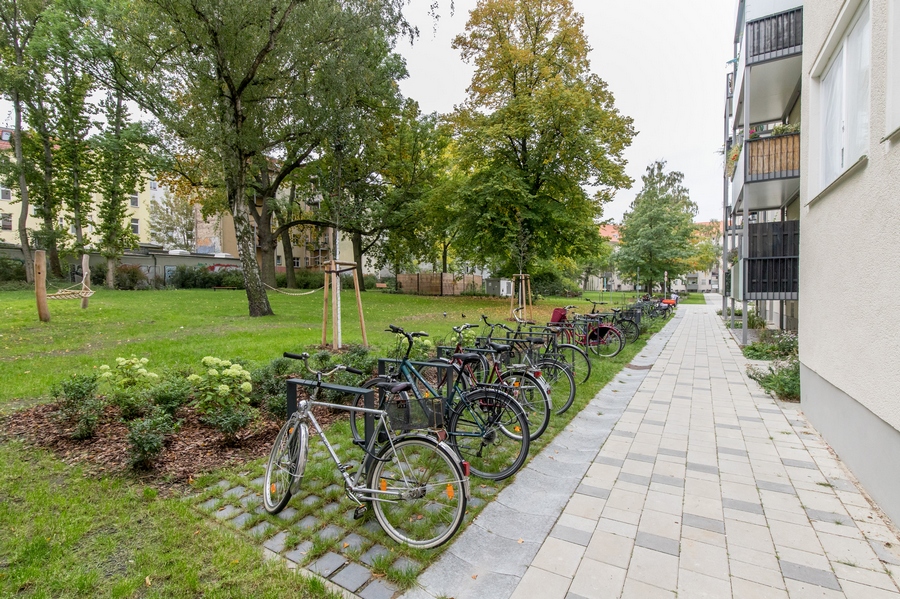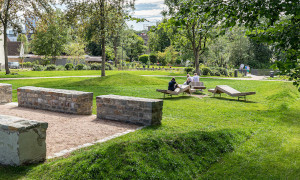"Faster Construction Act": bdla Berlin/Brandenburg calls for fundamental revision
- Anzeige Text im Grid: Nein
In a statement to the Senate Department for Urban Development, Building and Housing (SenSBW) coordinated with the Berlin Chamber of Architects, the Association of German Landscape Architects (bdla) has taken a critical stance on the draft bill for the Berlin Senate's "Faster Construction Act".

In the view of the bdla, the "Fast-Track Building Act" is slowing down orderly and climate-resilient urban development and undermining the principle of the separation of powers between the Senate and the districts by means of a "top-down policy". The important acceleration instrument of the Qualified Open Space Plan (QFP) is once again not being introduced, as was the case with the amendment of the Berlin Building Code. In its statement, the bdla calls on the Senate to fundamentally revise the "Faster Building Act".
"The Berlin Senate is pursuing the good goal of creating living space in a bad way with the legislative proposals for a 'faster building law'," emphasizes Eike Richter, Chairman of the Association of German Landscape Architects Berlin / Brandenburg.
In Berlin, 'faster building' is obviously to be at the expense of the environment and society. Issues such as monument protection, protection of biodiversity, forest protection, tree protection and environmental protection, whose integration could be recognized as an opportunity for high-quality urban development in Berlin and for services of general interest, appear to be more of a hindrance and are now to be restricted, Eike Richter continues.
The planned abolition of the separation of powers between the Senate and the districts is very regrettable. It is apparently not recognized that the protection of district interests also leads to better integration of construction projects into existing structures, according to Britta Deiwick, specialist spokesperson for landscape planning of the Association of German Landscape Architects Berlin Brandenburg.
"What does it mean to integrate sectoral specialist topics such as the preservation of legal biotope protection, forest protection and tree protection into planning? It is a way of optimizing planning, adapting it to the existing situation and finding the best possible solutions. Berlin now wants to move further away from this," adds Britta Deiwick.
As with the amendment of the building regulations, the previous Senate once again failed to introduce an essential instrument, the Qualified Open Space Plan (QFP), as a binding requirement for every building application, despite assurances from the previous Senate. The QFP brings together sectoral specialist topics at a very early stage, thereby highlighting conflicts, enabling integrated solutions and thus effectively achieving accelerated procedures.
Obviously, the current Senate is only interested in achieving one goal - the creation of housing units. Social achievements and the state of Berlin's own goals, e.g. in the area of climate adaptation, are being suspended, the bdla further criticizes.
The Berlin Senate seems to be losing touch with the grassroots - the districts and the people of Berlin: top down instead of bottom up. This approach will not work because it is outdated. It will meet with resistance, warns the bdla.
Years of failures in administrative action are to be concealed by actionism on the legal side. The representatives of the bdla emphasize that the administration has lacked a binding decision-making culture for years.
A prime example of poor administrative practice in the past is the guideline on species protection in Berlin, which is not applied by the Senate Department for Mobility, Transport, Climate Protection and the Environment (SenMVKU) as the publisher. Instead of creating legal certainty, further legal uncertainty has arisen, which is currently significantly delaying many procedures.
"The bdla Berlin Brandenburg supports climate-resilient housing construction in Berlin. The use of well-developed locations and existing substance lays the foundation for urban development for the benefit of existing and future generations," emphasizes Eike Richter. However, the current "Faster Building Act" does not meet this requirement and should be fundamentally revised in the opinion of the bdla.
- Latitude: 0
- Longitude: 0
Landscape Architecture
Announcements
Association


